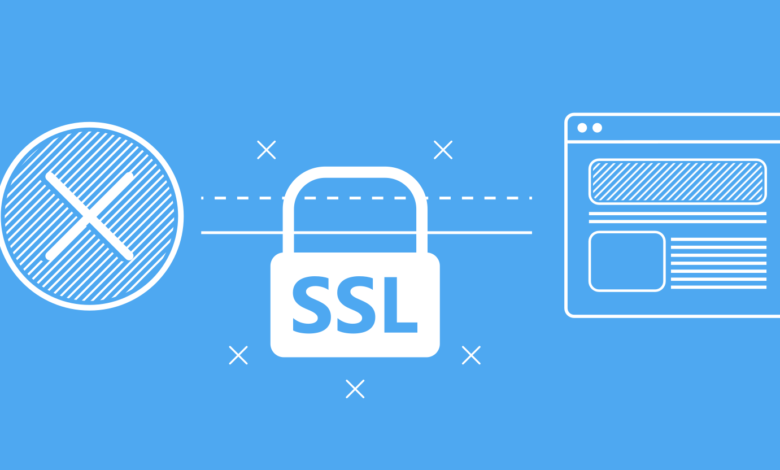Prevent SSL Errors with Scheduled SSL Monitoring

In today’s digital age, online security is non-negotiable. Whether you’re running an e-commerce store, a blog, or a SaaS platform, keeping your website secure builds trust and credibility. One of the most critical parts of website security is your SSL certificate. But what happens if it expires or malfunctions without you knowing? That’s where SSL Monitoring comes in.
Scheduled SSL monitoring is the easiest way to avoid costly SSL errors and ensure your website stays secure and accessible at all times. A small lapse like an expired certificate can result in browser warnings, loss of customer trust, or even a drop in search rankings.
What Is SSL and Why Does It Matter?
SSL (Secure Sockets Layer) is the protocol that encrypts data between a user’s browser and your website. It protects sensitive information such as login credentials, credit card details, and personal data.
When your SSL certificate is valid, users will see a padlock icon in their browser. If the certificate is missing, expired, or misconfigured, browsers will block access or display alarming security warnings.
These SSL errors can:
Drive away potential customers
Damage your brand’s reputation
Cause search engines to de-rank your site
Interrupt transactions on e-commerce platforms
Common Causes of SSL Errors
SSL errors often occur due to reasons that are preventable. Here are a few of the most common ones:
Certificate Expiry: Many certificates last 90 days or a year. If not renewed in time, they expire.
Mismatched Domains: The certificate does not match the website URL.
Incomplete Certificate Chains: Intermediary certificates may be missing.
Incorrect Server Configuration: Servers may not be correctly set up to use SSL.
Revoked Certificates: If a certificate authority revokes your cert, it becomes invalid.
All of these issues can go unnoticed unless you’re actively monitoring the status of your SSL.
How Scheduled SSL Monitoring Helps
Scheduled SSL monitoring is a proactive approach to check the health of your SSL certificate on a regular basis. It alerts you when:
Your SSL certificate is close to expiring
The certificate has been revoked or changed
The hostname does not match the certificate
There are issues in the certificate chain
There’s a vulnerability or misconfiguration
With SSL Monitoring tools, these checks can be performed automatically on a daily or hourly basis. As soon as something goes wrong, you’re notified immediately so you can fix it before it affects your visitors.
Benefits of Using SSL Monitoring
Avoid Downtime and Disruption
A sudden SSL error can lead to your entire website being inaccessible. Scheduled monitoring ensures that never happens.
Improve Security
You’re instantly alerted if someone tampers with your SSL setup or if there’s a vulnerability. This adds another layer of cybersecurity.
Maintain Customer Trust
An expired SSL certificate can damage your reputation. Monitoring helps you renew certificates well before they expire.
Boost SEO Performance
Google considers SSL a ranking factor. Keeping your SSL in perfect shape helps your search engine visibility.
Simplify Compliance
If your business needs to meet compliance standards (e.g., PCI-DSS), SSL monitoring helps you stay aligned by avoiding lapses.
How to Set Up Scheduled SSL Monitoring
Setting up scheduled SSL checks is simple, especially with modern tools. Here’s how most platforms work:
Enter Your Website URL Add your domain to the monitoring dashboard.
Set Check Frequency Choose how often the SSL should be tested (daily, hourly, etc.).
Set Expiry Alerts Get notified days or weeks before the certificate expires.
Choose Notification Channels Set up alerts via email, SMS, phone calls, or integrations like Slack.
Monitor & Act – Get reports and fix issues as they arise.
Read Also: The Future of Dentistry: How Technology Is Making Dental Care More Affordable
What to Look for in an SSL Monitoring Tool
When choosing a monitoring tool, make sure it covers all critical aspects of SSL health:
Expiry Alerts: Notifications before the SSL certificate expires.
Domain Match Checks: Ensures the cert matches your site’s domain/subdomain.
Certificate Authority Validity: Verifies if the cert is issued from a trusted CA.
Chain Verification: Ensures the complete certificate chain is intact.
Revocation Status: Alerts if the cert is revoked by the issuer.
Multi-Site Monitoring: If you manage multiple domains, monitor them all from one place.
Reporting & Logs: Easy-to-understand logs and visual reports.
These features ensure that nothing slips through the cracks.
Real-World Scenarios Where SSL Monitoring Saves the Day
E-commerce Sites: One missed renewal can lead to thousands in lost revenue.
SaaS Platforms: Customers can’t log in securely if the SSL fails.
Agencies: Managing multiple client domains? Scheduled monitoring prevents emergencies.
Startups: Build trust early by showing users a secure site every time.
Government & Education Sites: SSL integrity is key for sensitive data and public trust.
Final Thoughts
SSL certificates are essential for online security, and their failure can be both embarrassing and expensive. The good news is, this risk is entirely preventable.
With scheduled SSL monitoring, you can stay one step ahead of potential issues. Real-time alerts, automatic checks, and expiry warnings help ensure that your website remains secure, trusted, and accessible.
Whether you’re managing one domain or hundreds, investing in a reliable SSL Monitoring tool is a smart move that pays off in both security and peace of mind.




